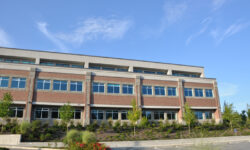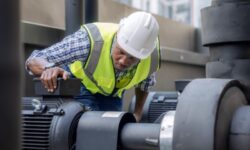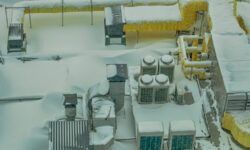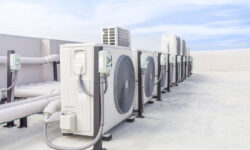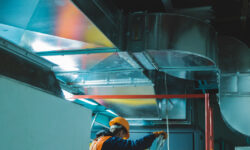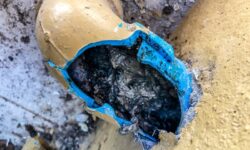Heat Recovery Ventilation (HRV) and Energy Recovery Ventilation (ERV) systems are vital for modern buildings. They provide fresh air while conserving energy, helping maintain indoor air quality, reduce energy costs, and enhance overall comfort. Let’s explore what HRV and ERV systems are, their applications, and their benefits.
Read more →Backflow prevention is a critical aspect of commercial plumbing systems that ensure the safety and quality of the water supply. Backflow occurs when water flows opposite from its intended path, potentially allowing contaminants to enter the clean water supply. This can lead to serious health risks and significant financial consequences for businesses. Effective backflow prevention measures are essential for maintaining a safe and reliable plumbing system.
Read more →Plumbing problems in a commercial setting can be more than a minor inconvenience—they can lead to significant business disruptions, costly repairs, and revenue loss. Whether it’s a retail store, an office building, or a large industrial complex, maintaining an efficient and functional commercial plumbing system is crucial for business operations. Commercial plumbing faces unique challenges, unlike residential systems, due to higher usage volumes, complex installations, and stringent health regulations.
Read more →The importance of commissioning in the performance of HVAC (Heating, Ventilation, and Air Conditioning) systems cannot be overstated. This process ensures that these systems are designed, installed, and functioning to meet the specific needs of a building and its occupants. Let’s dive into why commissioning is critical for HVAC system performance, its benefits, and some best practices to follow.
Read more →Emergency HVAC services can keep your business running smoothly. Every second counts in the business world and disruptions can be costly. A critical system that keeps your operations running smoothly is your HVAC (Heating, Ventilation, and Air Conditioning) system. It can lead to discomfort, lost productivity, and potential financial losses when it malfunctions or breaks down unexpectedly.
Read more →Beyond heating and cooling, the role of plumbing and mechanical services are vital in our homes and commercial spaces; we often think about heating and cooling systems as the primary components of indoor comfort. While they undoubtedly play a crucial role, another essential aspect often goes unnoticed: plumbing and mechanical services.
Read more →As a business owner or facility manager, you want to make sure your commercial building is safe and comfortable for its occupants. One vital aspect of achieving this comfort is effectively managing HVAC systems, especially during peak seasons. As the seasons change, so do the demands on your commercial HVAC system. Whether it’s the scorching heat of summer or the bitter cold of winter, maintaining a comfortable indoor environment in your commercial space is important for the well-being of employees and customers alike. In this blog, we’ll explore the challenges of managing HVAC during peak seasons and provide valuable tips to ensure your space remains comfortable year-round.
Read more →Optimizing HVAC (Heating, Ventilation, and Air Conditioning) performance through system balancing is crucial in maintaining indoor comfort and air quality. However, even the most advanced HVAC systems can underperform if they are not correctly balanced. System balancing is a critical maintenance process that ensures your HVAC system operates efficiently, minimizes energy consumption, and extends lifespan. Within this blog, The Severn Group will take you on a journey and explore understanding what system balancing is, the importance of system balancing, and provide tips on optimizing your HVAC performance.
Read more →As the seasons change and the weather becomes more extreme, our HVAC (Heating, Ventilation, and Air Conditioning) systems play a crucial role in maintaining a comfortable indoor environment. However, even the most advanced HVAC systems can encounter efficiency issues if there are air leaks in the system. In a commercial setting, HVAC systems work overtime to accommodate larger spaces and more occupants. The consequences of air leaks can be more profound, affecting employee productivity, customer experience, discomfort, inefficiencies, and even regulatory compliance. Energy inefficiency could lead to soaring utility bills, cutting into profit margins.
Read more →Commercial drain cleaning: restoring proper flow and preventing clogs is crucial for any commercial establishment for daily operations. One common issue that can disrupt this functionality is clogged drains. Commercial drain clogs can lead to unpleasant odors, slow drainage, and even complete blockages, impacting business operations and customer experiences. The Severn Group is about to delve into the importance of commercial drain cleaning, methods to restore proper flow, and preventive measures to keep drains clear.
Read more →



